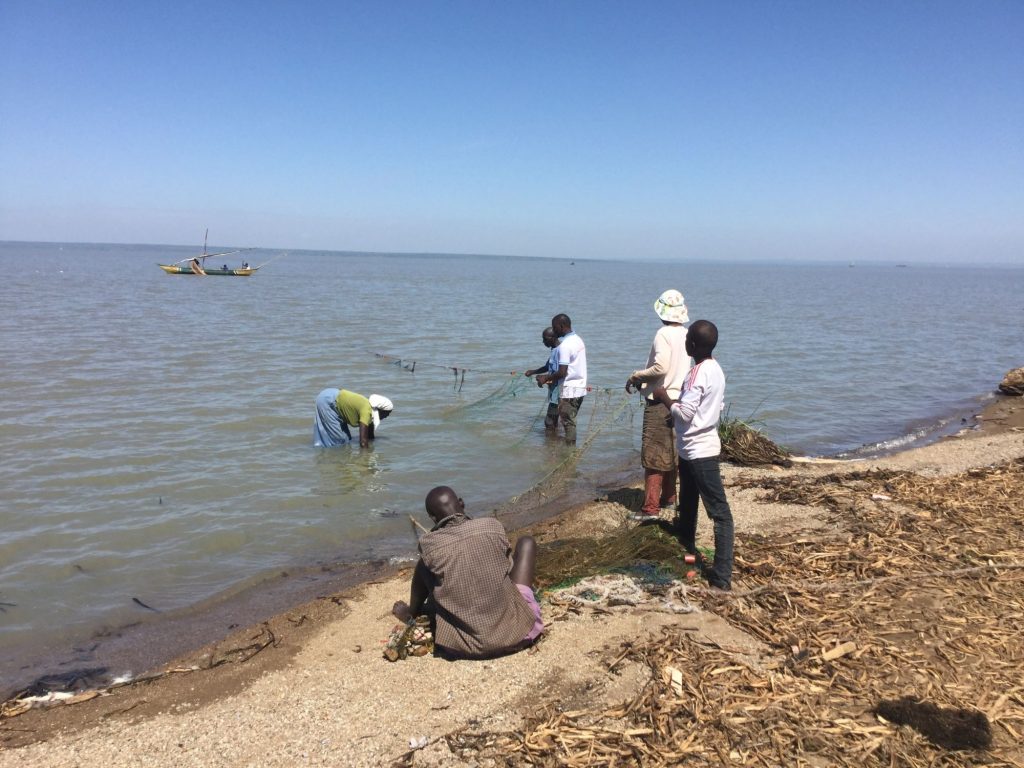What does ’empowerment’ mean?
A famous proverb says “Give a man a fish, you feed him for a day. Teach a man to fish, and you feed him for a lifetime”.
I already hear you saying… Uh oh, not that one again! I know it is completely overused, like an old favorite shirt that has been worn out…
In the context of today’s story, I would like to get to the bottom of this proverb by shining some critical light on the same.
At first glance, it does contain a positive message: “encourage people to do something themselves. “
The question that should be asked is: Can I really choose what I want someone to do in order for them to survive?
And that’s what one of the heated discussions with kanthari participants was all about: the definition of “empowerment”.
The question in this discussion was, “how far does empowerment go?” Is it enough for me to train my target group in one profession, only fishing? Yes, maybe it helps them to temporarily generate some income. But don’t I make them dependent? What happens if there is no fish left or if in cases of a crisis (corona), fishing is not possible because of a lockdown? Or, what if I am not passionate about the fishing trade? Can I decide to get into other professions with what I have learned, and would that bring me progress?
Many of our participants never had specialized training before coming to kanthari and are therefore able to react quickly and be flexible in new situations. That makes them survivors. Without having studied Emmanuel Kant, they instinctively understand what it means to create the “conditions of possibility”. This, and only this, is true “empowerment” for them.
Let us return to the topic of fish that is linked here to a shocking phenomenon.
Around Lake Victoria, but especially on the Kenyan shores, women are mercilessly exploited. A practice known in Kenya as ‘Sex for Fish’ is commonplace.
Cavin Odera, 2018 kanthari graduate, became an orphan at the age of 12 and thus he became one of the many victims of this practice. His mother, poor and not educated, had 7 children to feed. The only way to get this done was a daily hike to the shores of the lake to get fish to be sold at the market.
Fishing has been a male-only profession. Fishermen shamelessly exploit women’s poverty and instead of money, they demand sex to pay for fish.
In Cavin’s home region of Homa Bay county, the HIV rate is particularly high. His parents and later his sister died of AIDS-related illnesses. Cavin lived on the street for several years until a friend of his mother took him in, along with seven other orphans. In memory of his mother and sister, Cavin is now working to ensure that women can break out of the vicious cycle – poverty, lack of education, prostitution, HIV infection and then even greater poverty.
His initial idea: he wanted to promote the women of Lake Victoria in such a way, or rather “empower” them, so they could get access to fish, in the spirit of the quote, ‘teach them to fish’.
When he presented his idea, other participants reacted quickly: “Fishing is dangerous. So now you are forcing them to risk their lives to save them from prostitution?”
“Do you give them any freedom of choice at all?”
“How about giving them the opportunity to choose a profession they want?”
The discussion we had was not only applicable to the social sector, but the entire education system. The global trend towards privatizing the education sector is increasingly offering highly specialized courses and training workshops. This creates only “subject matter morons”, i.e. experts with no ability to see the wider picture. This could have devastating effects at a time of great change. Specialization means decentralization of knowledge and that could lead to general destabilization, especially during times of crises.
Cavin was open for critical feedback and converted the same into new concepts.
And so he developed Wa-Wa (WANAWAKE WAVUVI KENYA), the first “Fisher Women” academy.
His 400+ trainees have been given the conditions of possibility and initial training in health, survival skills and methods that lead to self-sustainability. In this way the women are empowered to take their lives in their own hands.
Additionally, he offers training in the following:
– Fishing on Lake Victoria
– Weaving of fishing nets and repairing of fishing gear
– Boat building
– Fish farming
and for those who cannot fish themselves because of the lockdown in times of Corona, he offers vegetable cultivation.
Considering all this, let’s change the proverb a little:
“Give a man fish, you feed him for a day. Teach him to take charge of his life and you create endless possibility”

